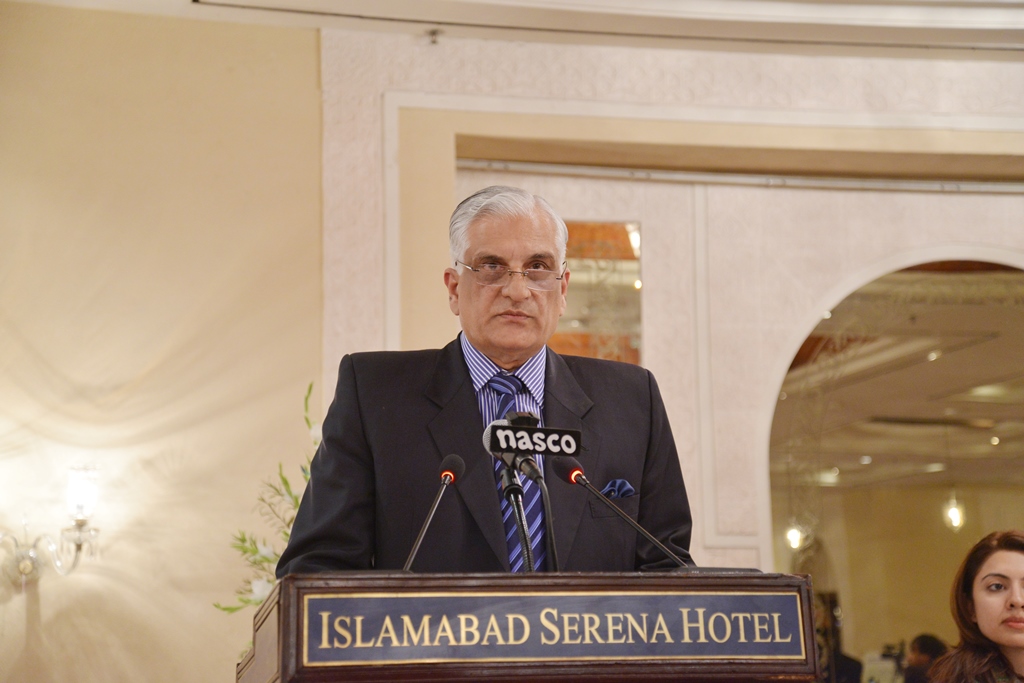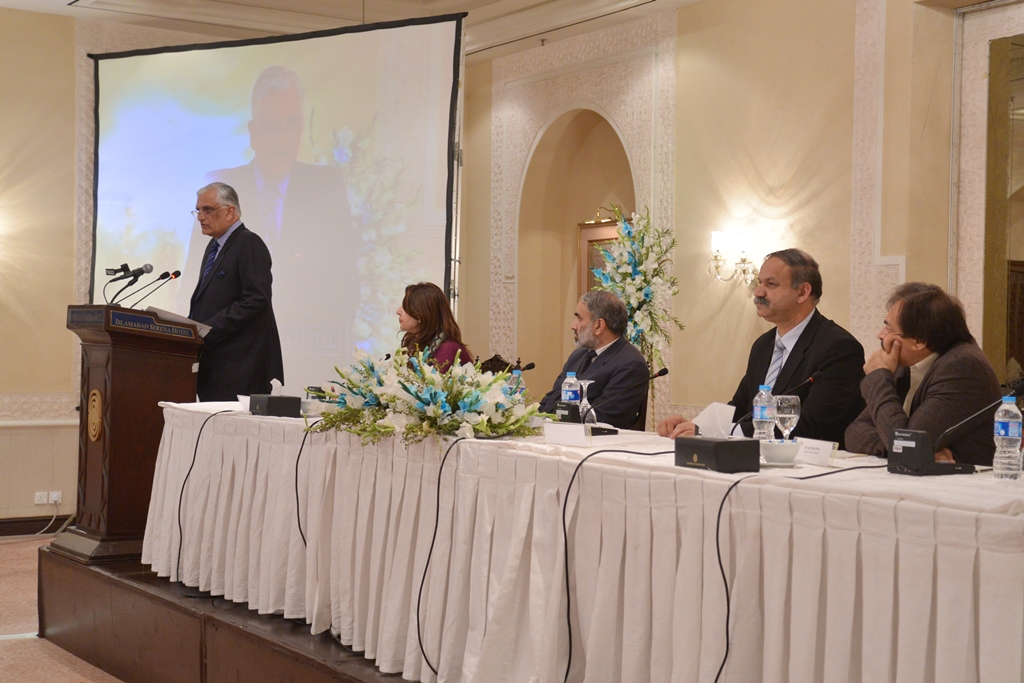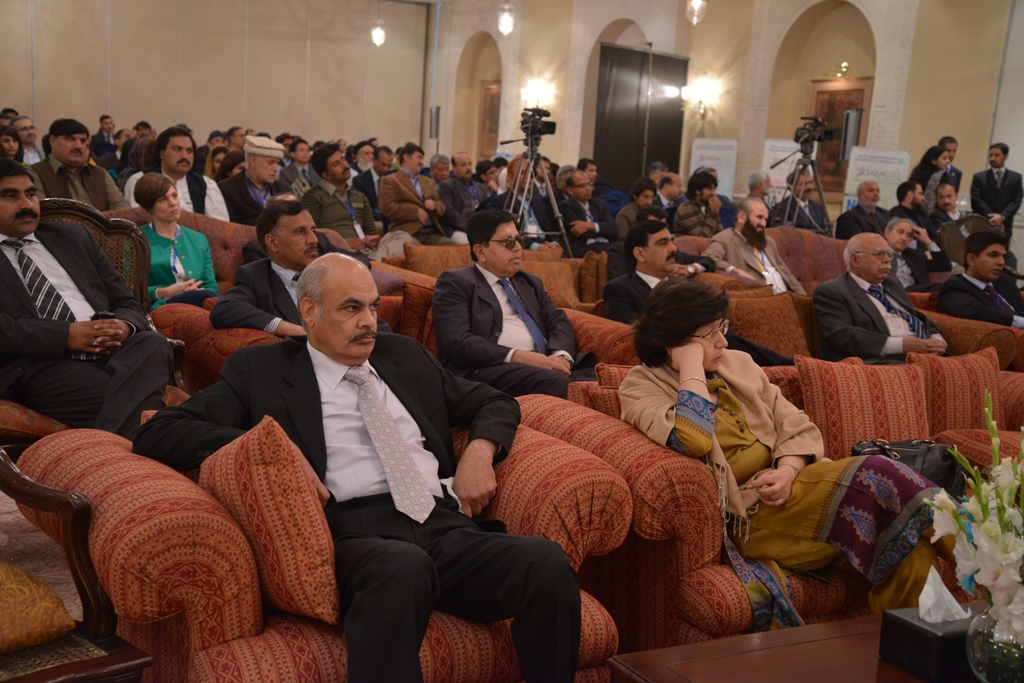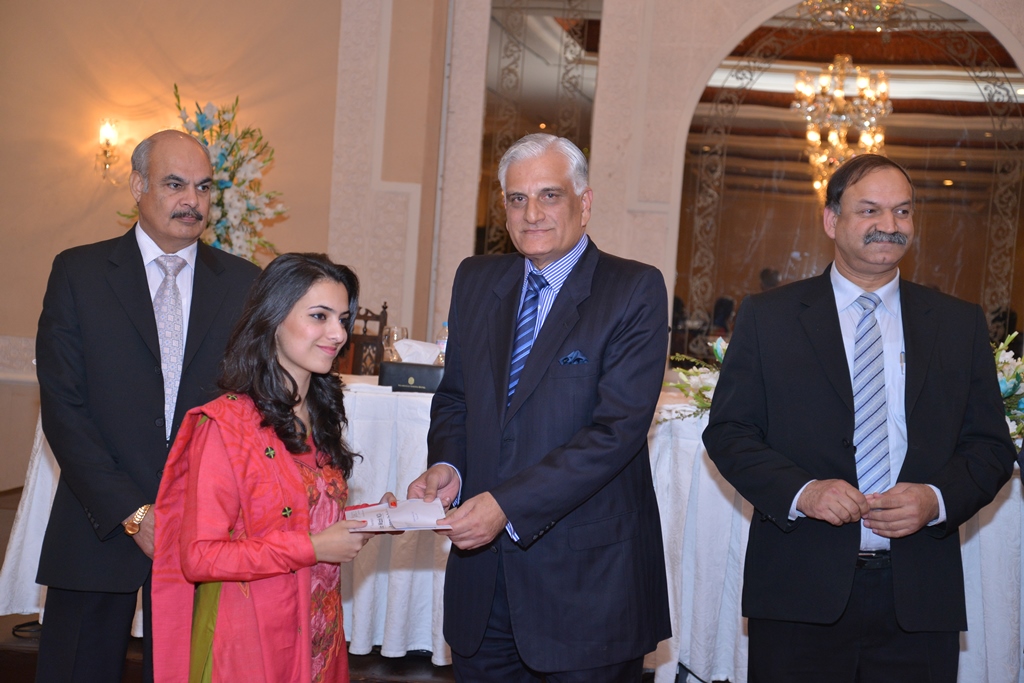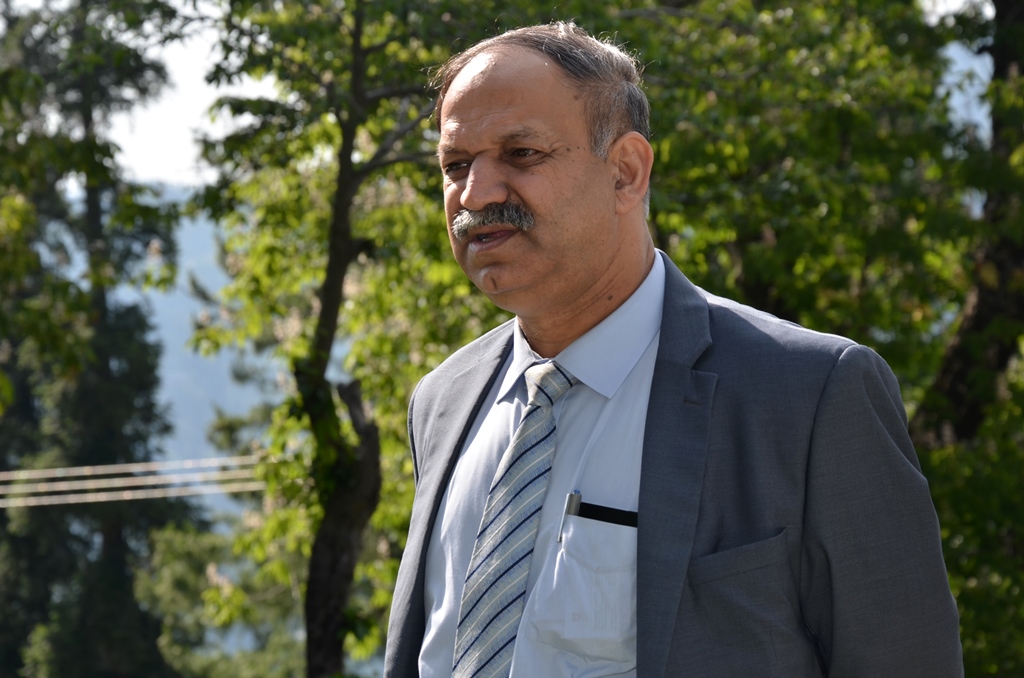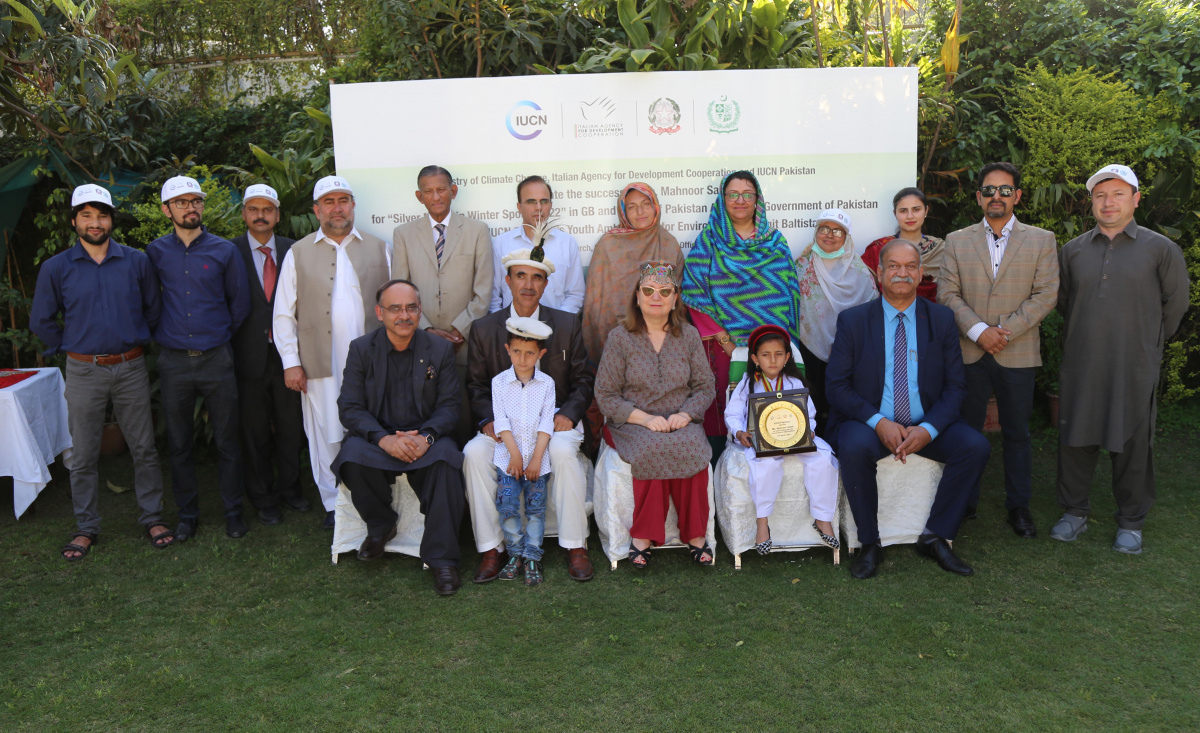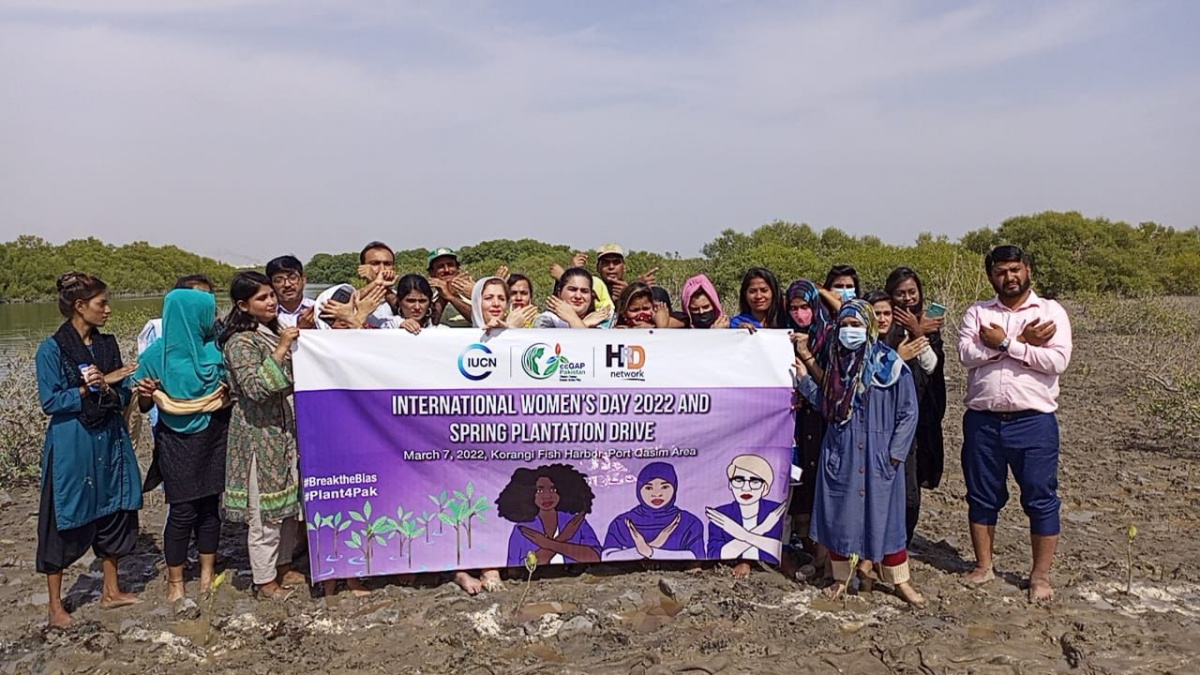SAEAC 2013 Concludes with Experts Calling for Strategic Approach to Environmental Assessment in Face of Climate Change
The South Asian Environmental Assessment Conference (SAEAC13) concluded today with experts and delegates from South Asian and other countries calling for a structured approach to tackling climate change through strategic environmental impact assessment.
The Conference was organized jointly by the Government of Pakistan and IUCN, and was attended by representatives of the government, civil society and the private sector.
The conference came up with a declaration that emphasized engagement with the media, support the participation of a broad range of stakeholders particularly those that are directly affected by projects that require EIA, effective environmental assessment higher education and professional training; professional standard, and Review, reform, and effective enforcement of laws, rules and procedures related to environmental assessment.
The two-day Conference is a major initiative of the National Impact Assessment Programme (NIAP) –a joint programme of the Government of Pakistan and IUCN that aims to contribute to sustainable development in Pakistan by strengthening EIAs and introducing the concept of SEA into Pakistan’s development planning process. The programme is being funded by Embassy of the Kingdom of the Netherlands (EKN) and technical assistance is being provided by the Netherlands Commission for Environmental Assessment (NCEA).
Experts are now calling for a shift from solely looking at Environmental Impact Assessments on individual projects to the idea of Strategic Environmental Assessment which builds environmental assessment into a nation’s policy and programmes, and considers individual projects in the context of the country’s full development agenda, rather than on a case-by-case basis.
EIA usually relates to environment assessments of the projects that aim to integrate environmental considerations into the earliest stages of policy, plan and programme development. EIA is one of several tools available for improving the way in which decisions are made in order to promote sustainable development outcomes. SEA helps ensure that environmental considerations play a more effective role in policy development. Because the linkages between environmental, social and economic factors are better understood and addressed, policies, plans and programmes have a greater likelihood to contribute to sustainable development.
Speaking on the occasion, Mr. Zahid Hamid, Minister for Science and Technology, underscored the need for focusing on climatic issues, and added, “This Conference has ignited considerable interest in the subject of environmental assessment, and today we are reaffirming our pledge to work more strategically and more responsibly towards shaping our future development.”
He said that one of the key objectives of the Conference was to create the right enabling conditions for cross-fertilization. “And it has been heartening to see such a diverse group of professionals ranging from the academics to the private sector representatives, and from environmental professionals to government representatives.” The technical sessions, he observed, held as part of this Conference have brought out some very interesting conclusions. These conclusions should help South Asia pave the way for an initial strategy that can be refined as we move forward, he noted.
The Program has helped bring leading international environmental professionals to Pakistan, as a result of which ‘we can expect that work on Impact Assessment in Pakistan will be based on international best practice,’ Mr. Hamid said.
Mr. Mahmood Akhtar Cheema, Country Representative of IUCN Pakistan, said that Pakistan was early in introducing mandatory Environmental Impact Assessment at a national level, “and we hope that we shall also be the ones with the support of the government to help introduce the Strategic Environmental Assessment at the policy level.” The last two days, Mr. Cheema continued, have given us all the opportunity to share experiences and learn from each other in the field, and to discuss with colleagues and partners from around the region.
The Conference concluded with a prize distribution ceremony for students of arts schools who had participated in a poster competition held on the sidelines, depicting environmental impact assessment. A technical session on the media was also chaired by Syed Talaat Hussain, a renowned TV anchor and journalist, highlighting the role of media in environmental assessment.
For further information or interviews, please contact:
Danish Rashdi
Manager, Communications
Cell: 0303-3335769
Email: danish.rashdi@iucn.org

